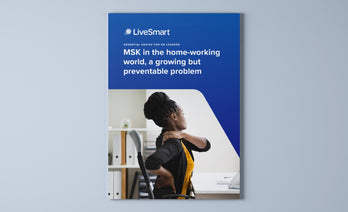Millions of people across the world have been working from home over the past year due to the restrictions around Coronavirus. Over the next few months, we will see fresh changes to people’s work patterns as more and more offices and workplaces reopen as a result of the vaccine roll out across Britain, alongside other measures.
Whilst returning to the office will bring relief to many for numerous reasons, it will also bring its share of anxiety and stress, especially, given the constant messages we have had throughout the year on distancing from others and avoiding the office unless absolutely necessary.
So what are the key areas of potential anxiety that organisations should watch out for and how can they help?
Adjusting to the post lockdown work-life balance
Those returning to the workplace may have worries about their personal safety, about current ways of working with new rules imposed, as well as possible changes to their actual roles. Those who have been on furlough may also feel anxious about returning to work life itself, let alone incorporating new ways of working to maintain safety measures.
Organisations need to let people know the strategy for returning to work by communicating clear and concise information making sure to address any current facts as well as uncertainties with timelines in place so people will know when to expect answers and any upcoming changes. Offering employees a confidential channel in which to ask questions and receive answers can tailor the communication to avoid overwhelming people with too much information all at once.
Addressing specific mental health issues or concerns.
As employees return to work, it is important to be mindful of emerging and existing mental health issues. We know that the pandemic and recurring lockdowns have led to a surge in anxiety as well as an increase in rates of depression and generalised mental health issues across all age groups.
However, as mental health becomes a much more openly discussed topic, we hope that employees feel encouraged to reach out and ask for help when needed.
Whilst organisations had little or no preparation transferring entire workforces over to remote working, we now have time to consider and plan our return to a safe and secure workplace. It’s vital that organisations can monitor and track the wellbeing of their workforce through e.g. providing an environment where mental health issues are normalised, providing employees with access to online anonymous mental health supporting digital tools as well as setting up regular check-ins with staff so they have an opportunity to talk. Appropriate training is imperative so managers feel confident in not just recognising the signs and symptoms, but also know how to deal with individual cases appropriately and safely.
Potential losses of freedom.
While working from home has been extremely difficult for many, it has also provided certain freedoms and flexibilities e.g. avoiding long and tedious commutes and as a consequence being able to get an extra hour in bed/getting in some exercise before work, not having to wear business attire on a daily basis and saving money on meals out etc. In returning to work , employees will have to adapt to a less flexible working pattern as well as having less down time to spend with their families as they may have been doing. Many will have reflected on their priorities in life and will hope to retain some of these benefits, whilst still wanting to successfully progress their career.
Organisations need to consider whether they can embed an agile working policy that allows employees some freedoms i.e. can start and end times be negotiated? Can time be allocated to employees to do exercise during the day? Can staff be allowed to work from home on a given number of days per week if this was their choice? Companies can use this opportunity to fashion a hybrid model that best fits, and let it create a new shared culture for all employees that provides stability, social cohesion, identity, and belonging, whether employees work remotely, on premises, or in some combination of both.
Working relationships.
After months of working in isolation, being back in the office may bring interpersonal challenges. Loss of staff through redundancies, staff returning to work after a long period on furlough leave as well as natural changes in team dynamics due to remote working can all result in a very different work force than was there before Covid.
Organisations need to be aware that even the strongest of company cultures can face interpersonal tensions. Revised and clear company policies on all aspects of health and safety, as well as organisational procedures need to be communicated clearly so staff understand the guidelines in place and why they are necessary. Roles and responsibilities need to be defined and a ‘return to work’ process undertaken for all those who have been on furlough leave for a long period of time. Encouraging all employees to contribute to decision making irrespective of their position, will lend to inclusiveness and feelings of empowerment and satisfaction. Finally, having an ‘open door’ policy with managers is vital so staff are encouraged to air any concerns confidentially and with support.
It is imperative that organisations anticipate and understand the stress that could be associated with returning to the workplace, and devise a holistic and proactive well-being strategy to address this.
Want to better understand the wellbeing of your employees?
Our doctor-led health analytics help your team achieve great things.
We use blood analysis and lifestyle data to help your team understand – and address – what's really going on in mind and body. Find out more.

 Are your team feeling anxious about returning to the workplace?
Are your team feeling anxious about returning to the workplace?

